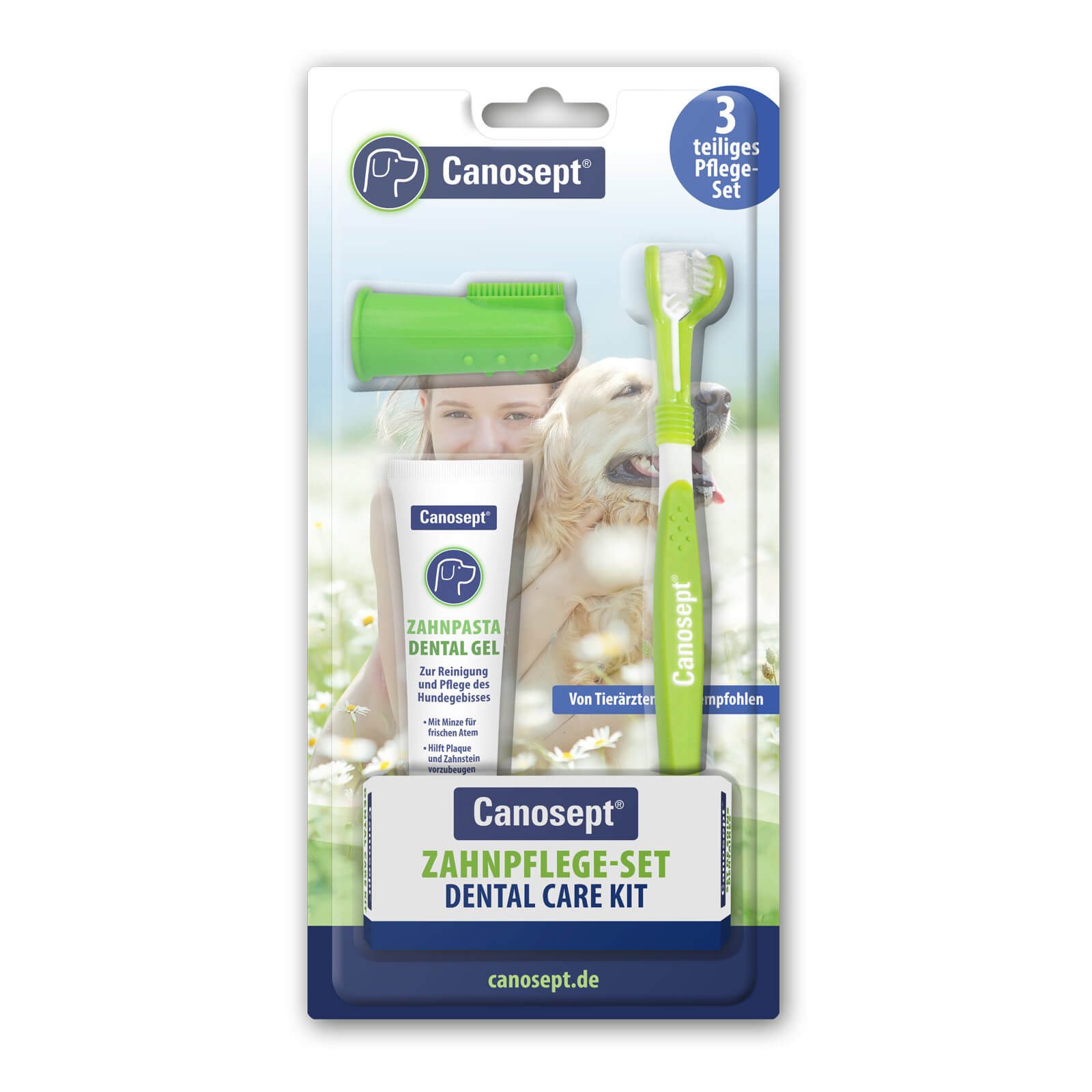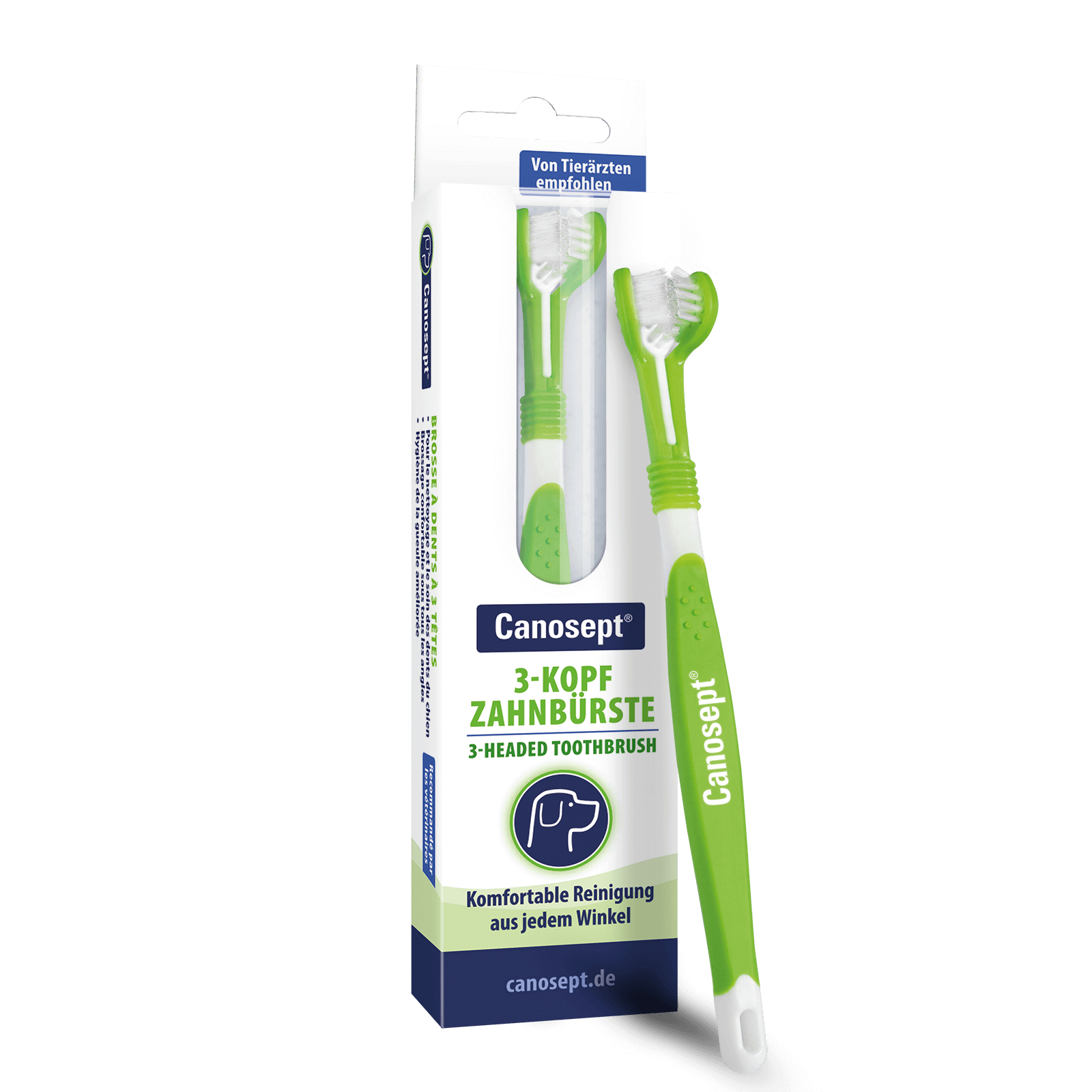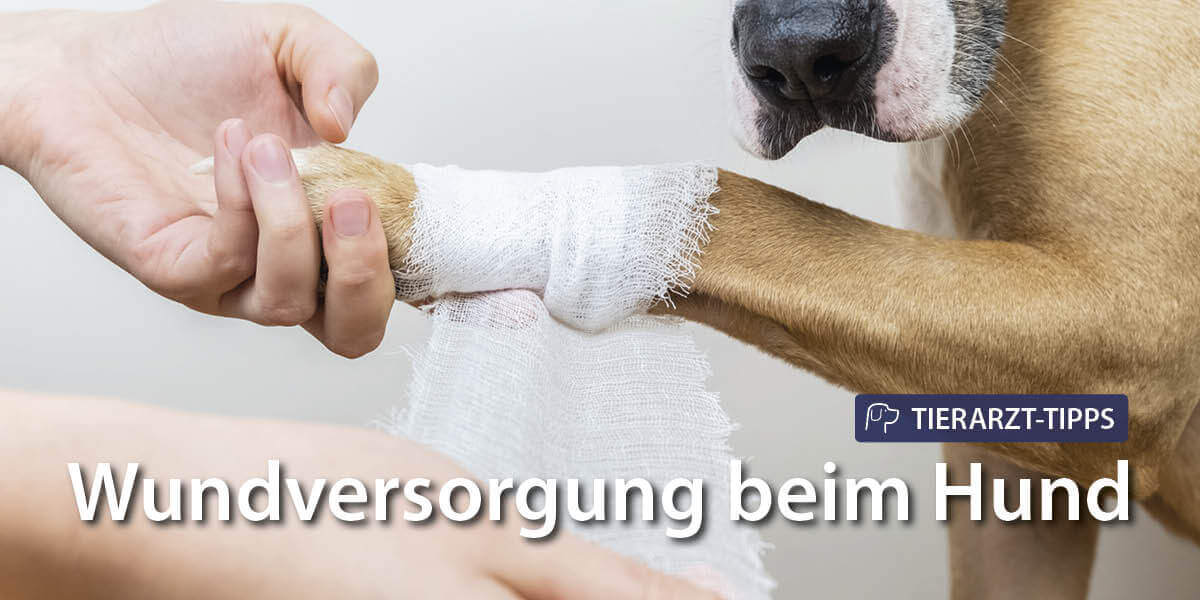- Dental care against bad breath
- Changing food for bad breath
- Causes of bad breath in dogs
- Which toothpaste for my dog
- Detecting diseases by smell
- Product recommendations against bad breath

Bad breath in dogs - What to do if your dog's mouth smells?
Bad breath in dogs can have various causes and can even be a symptom of illness. It should therefore always be taken seriously. To avoid serious consequences and pain, determining the cause is recommended.
If the bad breath is harmless, such as fish or rotten food, a change in diet and regular dental care can help. A dental cleaning, tartar removal, and interdental cleaning at the vet can also reduce bad breath in dogs.

Bad breath in dogs – regular dental care
With adequate oral and dental hygiene, you can often prevent bad breath in your dog. Regular dental care is the most effective way to reduce the odor-causing bacteria in your dog's mouth.
Find out in our blog article Dog Dental Care 1x1 how often you should brush your dog’s teeth and other important information about dental care for dogs.

Bad breath in dogs - changing food
A dog's odor can also become unpleasantly worse if it has eaten something that has gone bad. If your dog has bad breath and you suspect the food is the cause, you should always reconsider their diet. More and more dogs are becoming sensitive to foods with many additives and low-quality ingredients, such as grains and sugar. Gut health, species-appropriate feeding, and regular dental care are the most important preventative measures for healthy teeth and a long, happy dog life.
Bad breath in dogs - Why does my dog suddenly smell?
Many people think: Dirty paws, a wagging tail, and bad breath—that's just what dogs bring with them. But bad breath from dogs puts more than just owner-dog relationships to the test.
Strong and persistent bad breath in dogs is also a sign that something is wrong. Among other things, it can be a sign of dental health problems.
Bad breath in dogs – what are the causes?
There are various causes of bad breath in dogs. In puppies, for example, teething is one cause of an unpleasant odor. Other causes can be addressed by dogs themselves. These include:
- Inadequate dental care and oral hygiene
- Poor quality food / intestinal health
- Consumption of foul-smelling foods such as fish, tripe, etc.
Bad breath in dogs – a symptom of illness
Sometimes bad breath in dogs can also be a symptom of illness. The following conditions may be the cause:
- Tartar (as a result of inadequate dental care and oral hygiene)
- Injuries in the oral cavity
- Inflammation of the mouth (e.g. lip eczema)
- Inflammation of the mouth, gums or throat
- diabetes
- Gastritis / gas formation in the stomach
- Kidney diseases
- Liver diseases
- Tumors in the mouth or throat

What does a sick dog smell like?
Different diseases can be noticed by different bad breaths in dogs.
- Bleeding (e.g. teething) => Metallic
- Diabetes => Acetone
- Fungal infection / Diabetes => Sweet
- Inflamed gums or teeth => Purulent
- Stomach problems, heartburn => Sour
- Kidney diseases => Ammonia / Urine
If you suspect that your dog's bad breath could be related to an illness, a visit to the vet is strongly recommended.
Product recommendations against bad breath
To combat bad breath, improve oral hygiene and dental care, we recommend regular dental care with the Canosept dental care series .
The Canosept dental care set ensures well-groomed, healthy teeth and the Canosept dental care spray ensures fresh breath from the first use.











